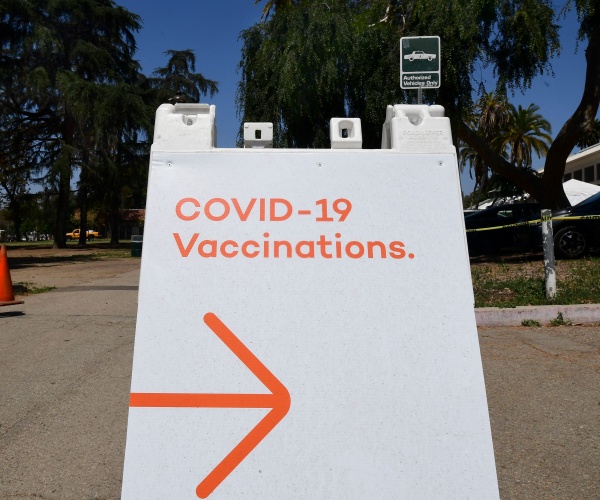Your COVID-19 booster may be patch or pill

By Lynn Allison From Newsmax
Researchers are looking into the next generation of COVID-19 vaccines which may take a different form than the shots currently available. All three drug companies — Pfizer, Moderna, and Johnson & Johnson — that have received authorization for their vaccines by the Food and Drug Administration are working on booster shots.
“With many vaccines, we understand that at a certain point we need to boost, whether that’s 9 months, 12 months, And we are preparing for that,” said Dr. David Kessler, chief science officer for the government’s COVID-19 response, according to CBS News.
Boosters may be combined with the annual flu shot like many of the vaccines used to immunize children against multiple diseases. Vaccine makers are also planning to tweak newer versions to address the most contagious variants that can cause severe illness.
Dr. John Mascola, a member of the Infectious Disease Society of America, and head of the Vaccine Research Center at the National Institute of Allergy and Infectious Diseases, said that federal scientists are focused on understanding SARS-CoV-2 mutations. SARS-CoV-2 is the virus that causes COVID-19.
Moderna and Pfizer are investigating how to fine tune their vaccines to neutralize the B.1.351 variant, also known as the South African variant.
“The reason that we are choosing that strain is it’s one of the ones we know about now, with the variants of concern that are out there now, that’s the most antigenically different,” said Mascola.
According to Fast Company, boosting vaccines against variants is easily done. Since both the Pfizer and Moderna vaccines use mRNA technology to neutralize the spike protein of SARS-CoV-2, immunologists say a simple tweak may solve the problem.
“With an RNA vaccine, it’s very easy to switch,” said Dr. Drew Weissman, an immunologist at the University of Pennsylvania, who specializes in mRNA technology and vaccine research. To design the current mRNA vaccines, scientists typed in the genetic code of the virus to help immune cells identify the invader. To revise the vaccines, researchers would then type in the new genetic code of the dominant variant so that immune cells would have an updated version of instructions. According to Fast Company, such a revision could be done in around 6 weeks.
There is also a large body or research investigating ways to make distributing and administering vaccines more convenient, without the costly freezers and dry ice needed to store the Pfizer and Moderna products. The National Institutes of Health has shown promising results with a nasal spray tested on monkeys, according to CBS News.
The Biomedical Advanced Research and Development Authority (BARDA) announced it established partnerships with developers to create “new vaccine delivery technologies†to provide individuals with a broader range of immunization options that are easier to use and potentially more effective than needles and syringes.
The BARDA announcement explained that having a wearable skin patch or oral options for vaccine delivery “may support rapid, large-scale immunizations while reducing the strain on the manufacturing supply chain.â€
Even more exciting is the research being conducted at the Walter Reed Army Institute of Research, according to CBS News. Scientists have been working on a “spike ferritin nanoparticle” that has shown effectiveness in SARS-CoV-2 variants. Researchers want to create a “pan-coronavirus” vaccine what will work on multiple mutations.
The WRAIR scientists developed protein vaccines that can could prove to more effective against a variety of coronavirus variants and are sturdier than the current vaccines, says CBS News.
© 2021 NewsmaxHealth. All rights reserved.
For more on this story go to: NEWSMAX





